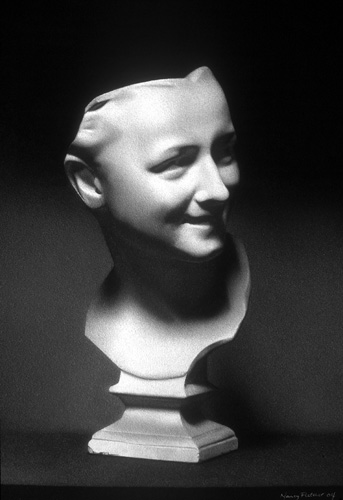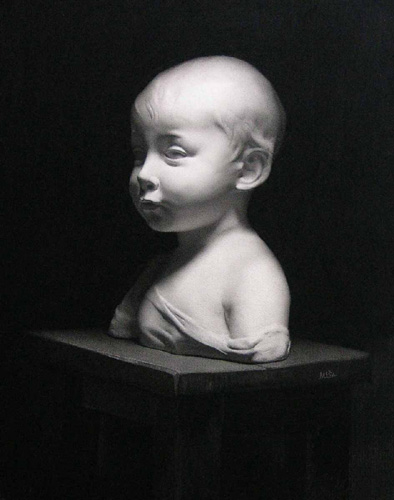Society
'... I threw myself into the whirlpool of fashionable society, I had gone with a heart unscathed and with a fresh mind. Like every grown-up child, I yearned for a love affair which would be worthwhile experience. Among the men of my own age, I met a group of young blades who held their heads high, talked a lot of nonsense, sat down without a tremor beside women who inspired me with awe while they chattered gibberish, sucked at the knobs of their canes, simpered, appropriated the fairest damsels, laid or pretended they had laid their heads on every pillow, had an air of pleasure being at their beck and call, looked on the most virtuous and prudish as easy prey and ready to surrender at a word, a bold gesture, an insolent glance. On my word of honour as a gentleman, I assure you that it would have been easier for me to have achieved power or a great name in the world of letters than to have been a success with some young, witty and gracious lady of quality. Thus I found the tumult of my feelings, my heart, my beliefs quite at variance with the axioms of society. I did not lack audacity, but it lay buried in my soul and failed to appear in my behaviour. Later, I was to learn that women do not like to be implored; but at that time I continued to worship from afar, in the sanctuary of my heart offering myself up to be tried by every test, for I harboured an energy that shrank from no sacrifice and form no torture. The women I adored gave themselves to fools whom I would not have engaged even as hall porters. Silent and motionless, I have often watched the lady of my dreams dancing at a ball; devoting in my thoughts a whole lifetime to one unending caress; expressing in my eyes all my hopes; laying at her feet my rapture, a young man's love far exceeding in intensity the most wonderful fairy tale. In certain moods, I should have willingly bartered my life for a single night of love.
'Well, since I never found an ear in which to whisper my impassioned pleadings, eyes to look at me as I looked at them, a heart responsive to my own, I lived on all my sufferings with a consuming energy which devoured itself--and this may have been due to lack of opportunity, courage or experience. I may have despaired of making myself understood or I may have feared to be understood too well. And yet, the storm raging within me was ready to break loose at every courteous glance cast in my direction. In spite of the ready acceptance of such a look or such a word tossed at me with the semblance of affectionate regard, I dared neither to speak nor to be silent felicitously. Sheer stress of emotion made my sayings insipid and my silence idiotic. Perhaps I was too unsophisticated to participate in so superficial a social circle, where life is spent in artificial light and where every thought is expressed in conventional phrases or by the dictates of prevailing fashion.

'To add to my troubles, I had not then learned to talk and to mean nothing, or to keep a silence pregnant with meaning. Though I concealed within me those exaltations of the spirit which women long to find in a lover, and though I was far from lacking the virility which is the pride of fools, all the women I knew proved both treacherous and cruel towards me. In my simplicity, I believed in and admired the prowess of those who bragged of their conquests and never suspected them of falsehood. It was a mistake on my part to expect love at the first ardent word from the kind of women who made up that circle of society, for they were vain and frivolous, hankered for a life of luxury, were intoxicated with egotism. How could a man expect deep passion from such as these? How contemplate the possibility of arousing a great love which would correspond to the tumultuous tempest which raged within my own breast? Can you imagine what it feels like to know one is made to love and to make a woman happy and never to find a soul who reciprocates, not even a noble and courageous Marcellina or even an old marquise? To carry a treasure in your haversack and never to meet a child or an inquisitive young girl who would ask to have a peep at its content. ...'
... Fashionable society rejects the sufferer just as a healthy man throws off the germs of disease; it abhors sickness and misfortune; it dreads them as the plague; it never hesitates between them and vice, for vice is the personification of the luxurious life. Calamity may possess a majesty peculiar to itself, but society will belittle it and make a mock of it with a witty turn of phrase; it will draw caricatures to hurl in the teeth of fallen monarchs fancying that thereby it is compensating itself for imaginary affronts it has received from them. Like the young Roman in the circus, society never shows mercy to a defeated gladiator; it lives on ridicule and wealth. 'Down with the weak,' is the motto of this sort of modern equivalent of the Equestrian Order established throughout the nations of the world, for in every land the rich are becoming a predominant class and the motto is engraved in hearts petrified by opulence or prejudiced by the aristocratic tradition.

A collection of schoolboys provides you with a miniature society representing life all the more voraciously in that the young are so artless and frank; here you will find poor and isolated individuals, the weak and the suffering, who are relegated to an abode betwixt contempt and pity. The Beatitudes of the Gospel promise them the kingdom of heaven in the hereafter. But if you penetrate into the lower order of creation you will find that when a fowl sickens the other poultry will fall upon it with their beaks, will pluck out its feathers and ultimately do it to death. Egoism, being the predominant characteristic of the universe, brings the full tide of severity to bear upon the unfortunates who have the boldness to spoil its enjoyments by trying to enter into its festivities. He who suffers in body or mind, who has no money or power, becomes a pariah. Let him remain in his solitude, for if he ventures across the frontier of his desert, he will find himself in a wintry climate, among the freezing glances, behaviour, words, and hearts of everyone. Where he expected sympathy, he may deem himself lucky if he escapes insults. The dying will do well to stay in their desolate attics. When society does tolerate misery, it is only to use if for its own purposes, to make it a pack-horse, to bridle it and saddle it and ride it and get some fun out of it.
(Honore de Balzac, 1831, The Fatal Skin, translated by Cedar Paul, London: Hamish Hamilton: 1949, pp. 91-4, 273-4)
Moksheungming
moksheungming@yahoo.com
2006.01.09 and 23